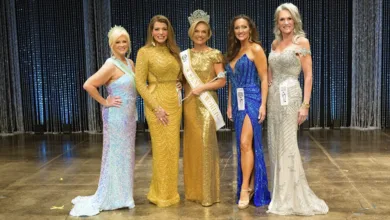An Older Adult or a Person with Age?

Above photo by Renee Fisher ~
It’s a Matter of “Othering”
Person-centered language and political correctness are both tricky. When they are combined, I rarely feel like I get it right.
Person-centered language tells me to refer to a child with autism, not an autistic child, to see the child first and the condition second. Conversely, some suggest that if the trait cannot be cured or left behind, then it is appropriate to use it as an identifier: The “autistic child,” because the autism is part of the child’s uniqueness.
This is all part of the concept of “othering.” If we identify someone by their illness or medical condition, then they can become the “other,” someone who is not like us.
In an ideal world, identifying that individual first as a person and then as someone with a medical condition should help us identify the individual as someone like us. It avoids classing them as “other,” which, to our primitive brain, often means dangerous.
Early humans needed a strong sense of “other” to survive. Was the armed band coming over the hill part of your community or “other”? If “other,” then they may have intended harm to your tribe or village. Did someone look unwell? That identification of “other”— not the same as you — might have protected you from an infectious disease that could wipe out your tribe.
Animals have the same responses to those who don’t belong to their pack, even today when the pack may be comprised of tall and small humans, a cat or two, and the dog. My small canine companion barks furiously whenever someone walks by the window, with no encroachment on home or property even mildly threatened. It instinctually assumes those passersby are not of us; therefore, they are other and dangerous. The family must be protected (loudly!).
The “othering” instinct is still alive and well in modern humans. It is part of the brain’s short-cut wiring that tells us immediately whether we are safe or whether we need to prepare for fight or flight.
In which of our mental categories do we file another person so we have a quick read on who they are? Our categories may be based on skin color, ethnic backgrounds, religion, politics, socioeconomic status, body size, or language spoken.
If we use the person-centered approach, we might talk about the person who follows Judaism, the person with black skin or white skin, the person who supports Republicans, or the person who speaks Spanish. More importantly, might we think about these individuals differently if we categorized them first as human and then noted their interesting differences? Does our instinctive “othering” (the Muslim, the black man, the Democrat or the Republican, the Spanish-speaking child) serve to separate us in ways that cause conflict and hinder unity?
My neighbor is a man with black skin who speaks Japanese. If we focused on our similarities first, and used the differences as descriptors rather than identifiers, would there be fewer “others” in our world?





